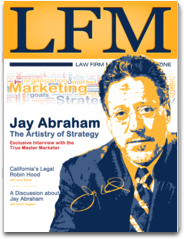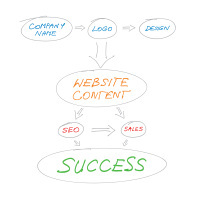
In today’s marketing world, it has become obvious how important social media is. However, just like every other social form of communication, there are manners that not only help one maintain a level of respect, but also help set one apart from the rest. I know this from my own professional experience, which is why I felt compelled to share an article by Samantha Collier, writer of the award winning “Social Media for Law Firms” blog.
Samantha covers several “do’s” and “don’ts” in social media, all of which are specifically aimed in helping attorneys and others in the legal profession. To read her full article, click here. Here are just a few she mentioned.
- “Remember reciprocity when utilizing social media for business development.”
- “Respond to criticism and conflicting opinions.”
- “Remember your reputation and brand on social media.”
- “Do not over-promote yourself when using social media.”
- “Don’t boast about your praise online.”
I highly recommend this to any attorney who is utilizing social media to market their firm. Marketing a law firm today is already challenging enough, but the proper use of social media can help leverage your efforts.





































